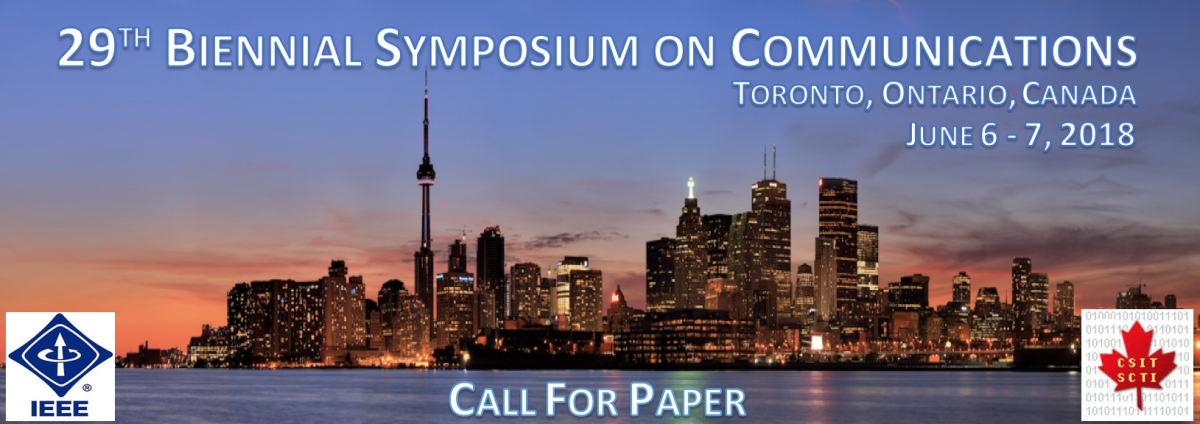Keynote Speaker:
Professor Aria Nosratinia
Title: Coherence Diversity: a new source of gains in wireless networks
Abstract:
Due to differences in mobility and local scattering, the links in a wireless network can experience disparities in coherence time that, in the past, were mostly ignored in the modeling and analysis of networks. We show that these coherence disparities can be a source of capacity gains (denoted “coherence diversity”) that are distinct and independent from classical gains such as spatial multiplexing, beamforming, and multiuser diversity. A product superposition is introduced that can exploit these differences in coherence and yield gains in degrees of freedom. The gains are an increasing function of the mismatch in coherence times, and vanish in the absence of coherence disparity. Coherence diversity will be explored in the context of pilot-based as well as Grassmannian communication. It is shown that differences in coherence bandwidth also yield a similar gain. Time permitting, non-uniformity of CSIT under coherence disparity and disparity in spatial coherence will be discussed. Several open problems in the broad area of coherence diversity will be highlighted.
Biographical sketch:
Aria Nosratinia is Erik Jonsson Distinguished Professor and associate head of the Electrical and Computer Engineering Department at the University of Texas at Dallas. He received his Ph.D. in Electrical and Computer Engineering from the University of Illinois at Urbana-Champaign in 1996. He has held visiting appointments at Princeton University, Rice University, and UCLA. His interests lie in the broad area of information theory and signal processing. He has served as editor or area editor for the IEEE Transactions on Wireless Communications, IEEE Transactions on Information Theory, IEEE Transactions on Image Processing,, IEEE Signal Processing Letters, and IEEE Wireless Communications. He is the general co-chair of the 2018 Information Theory Workshop. He has received the National Science Foundation career award, and the outstanding service award from the IEEE Signal Processing Society, Dallas Chapter. He has been designated a highly cited researcher by Clarivate Analytics (formerly Thomson Reuters). Dr. Nosratinia is a fellow of IEEE for contributions to multimedia and wireless communications.
Tutorial:
Professor Zheshen Zhang
Title: Quantum Communications: Fundamentals, Applications, and Physical Realizations
Abstract
Quantum information science gives rise to new communication paradigms that would offer unmatched security and capacity. This tutorial will provide an overview of the principles and applications of quantum communications. It will be comprised of three Sections: in Section I, we will introduce the basics of quantum information, i.e., how information is represented at a quantum mechanical level. The focus will be on the fundamental disparities between quantum and classical information, including the quantum superposition principle, measurement uncertainty, the no-cloning theorem, and quantum entanglement. In Section II, we will build upon the knowledge acquired in Section I to construct quantum-communication protocols that offer functionalities beyond the reach of classical communications. We will study quantum key distribution, quantum teleportation, entanglement swapping, and super-dense coding. Section III will be dedicated to bridging the gap between theory and experiment, by introducing the physical realizations of entanglement generation, operations and measurements on the quantum states of light, along with a case study of a complete quantum-communication system. The attendees of the tutorial are anticipated to learn the essential elements of quantum communications, from both theoretical and experimental perspectives. We hope that the materials presented in this tutorial will help to build connections between quantum and classical communications so that their respective tools and techniques may benefit each other to create new routes for interdisciplinary research.
Biographical sketch:
Zheshen Zhang is an Assistant Professor in the Department of Materials Science and Engineering and the College of Optical Sciences at the University of Arizona. He received his Ph.D. in Electrical and Computer Engineering from the Georgia Institute of Technology in 2011. Dr. Zhang joined MIT in 2012 as a Postdoctoral Associate and became a Research Scientist in 2015. He has been on the faculty of the University of Arizona since August 2017.
Dr. Zhang is an expert of quantum information science and technologies. His research encompasses a broad swath of the experimental and theoretical studies of both the fundamental and applied aspects. He studies new materials and light-matter interactions that give rise to unique quantum phenomena. These quantum phenomena are in turn leveraged in quantum-optics and nano-photonic platforms to implement devices that serve as building blocks for scalable quantum information processing. In conjunction with theoretical investigations on quantum protocols, Zhang’s research gives rise to novel applications in diverse fields including ultra-precise sensing, communications with provable security, and new powerful computing paradigms.
